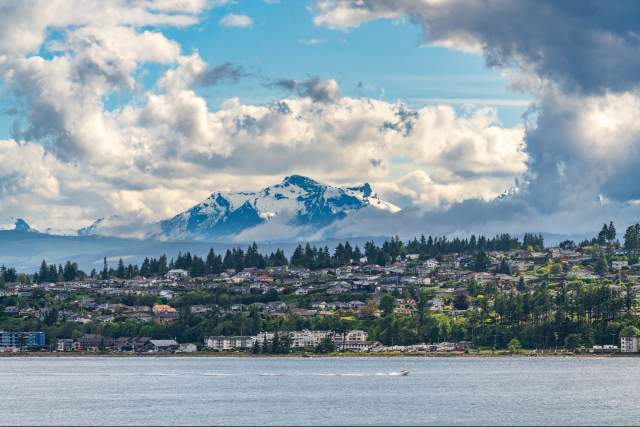The power of story and the power of place are inextricably linked. Stories have the ability to connect us, inspire us, inform us, and bridge understanding across diverse cultures and communities. The "Indigenous Voices of Vancouver Island" is a five-episode podcast series that features Indigenous entrepreneurs and community members from various First Nations.
We interviewed Kyla Egan, sustainability director at 4VI, and Tchadas Leo, who is from the Homalco First Nation and the Stillaguamish Tribe of Indians. Egan is responsible for managing 4VI’s sustainable development operations, while Leo is the podcast host. In this Innovators & Influencers video, they’ll share how the series came about and what’s next for it. Hint: it’s been renewed for a second season.
The idea for the podcast series emerged during the challenging days of the pandemic when 4VI needed to find ways to support the tourism industry, amplify Indigenous voices, and promote reconciliation. Once funding was secured, it was a 10-month process that was marked by careful planning.
“There are over 50 Nations on Vancouver Island and dozens of Indigenous-owned and operated tourism businesses,” said Egan. “We wanted to make sure that there was representation from across the Island. In the end, we had participants from 13 different Nations, and businesses that ranged from an art gallery to a seafood company.”
Egan said that throughout the process, attention to detail was important in creating accurate and respectful representation. Podcast producers paid close attention to everything, from the use of Indigenous languages and pronunciations, as well as podcast cover art, music, and associated imagery. Feedback to the podcast has been overwhelmingly positive and far-reaching.
“It has been listened to in over 30 countries,” Egan said. “In fact, I recently attended a virtual event with Australian tourism stakeholders, and a lot of the attendees had listened to the podcast, which was a great surprise. The podcast definitely helps inform the decisions of visitors when they come to the region, but I would also say it is a very useful resource to local residents so they can better understand the traditional territories and diverse cultures on Vancouver Island.”
For other DMOs interested in such a far-reaching project, Egan has some advice. “My advice would be if you’re looking at amplifying the voices of any equity-deserving group, make sure there’s ample space and time provided,” she said. “This really ensures that there is more opportunity for inclusion, respect, and active participation by BIPOC people. I would also be aware that the process is a dynamic one that involves a lot of dialogue with active listening and responsiveness. This is a great way to create a foundation of respect.”
Want to keep up to date on industry trends? Subscribe to the Simpleview newsletter to get the latest blog posts delivered straight to your inbox.
Sign up
